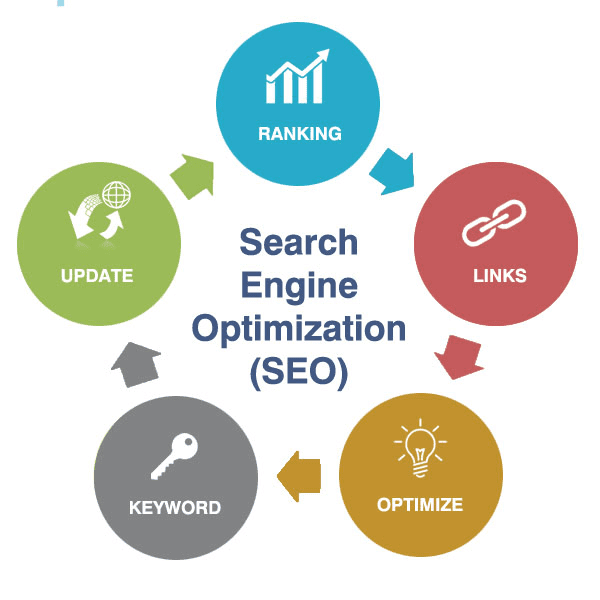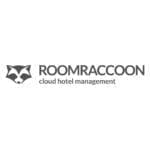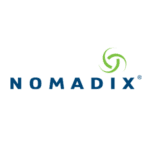 With websites now becoming a necessity for businesses (especially in the hotel sector!), getting noticed has become even more of a challenge.
With websites now becoming a necessity for businesses (especially in the hotel sector!), getting noticed has become even more of a challenge.
Studies have found that being on the first page of a Google search is vitally important, with only 0.78% of people clicking on results from the second page. In comparison, a #1 search result on Google boasts a 31.7% click-through rate (CTR).
The saturation of the hospitality industry has made effective Search Engine Optimisation, or SEO, integral to a company’s business strategy. In this article we will explore what SEO is and why it is important, before looking at specific elements such as defining target audience, optimising Google reviews for organic search, and link building.
Search Engine Optimisation

SEO is about pairing the right people with the right products. When done efficiently and effectively this has the potential to boost one’s exposure, resulting in more clicks. Done correctly, SEO ultimately ensures customer satisfaction through an understanding of the target audience.
SEO is the art of increasing the quality and quantity of your website traffic via organic search. For many companies, SEO is viewed as more important than other traditional marketing methods – and is much cheaper too!
It’s key to understand the user’s intent when searching for keywords and phrases for SEO purposes. Not only can this help you provide high-quality and relevant content for your website, it can also give you some insight into what your top ranking-rivals are providing, and whether there is a niche in the market you can exploit.
Meta titles and descriptions, containing descriptors of the contents of a webpage on the search page, are also important aspects of SEO.
The key to an effective meta description is to be highly relevant and concise, this way a user will be able to quickly decide whether a website is relevant to their search. These can divert you to the most appropriate area of the website without you having to enter the site at the homepage.
Defining target audience
In order to know what keywords and phrases to use, you first need to define and understand who your target audience is. By doing this, we are much more likely to know what search terms our intended audience will use, as well as what their search intent is.
As a hotel, for example, a combination of your destination and facilities is most likely to lend itself to a specific target audience. Generally speaking, it can be expected that a hostel would attract solo or budget travellers, whereas a serviced apartment is more likely to attract corporate or business travellers. Similarly, an adventure hotel may be popular with a specific demographic (such as millennials), whereas a resort might cater to families.
When discovering your target audience, it is key to pinpoint identifiers such as age, demographic, and lifestyle. Once the desired target audience has been found, words and phrases most likely to be used by this group can be strategically used in content on your website.
Optimising Google reviews for organic search
Targeting the right audience is also more likely to result in positive reviews on sites such as Google. These positive reviews can further improve your organic search ranking.
According to Google, local ranking factors into the categories of relevance, distance, and prominence. As well as a user’s reviews and ratings, user engagement by the company with these reviews is also important and demonstrates that you value your customers.
Alongside this, review quantity, diversity, and velocity can all influence your search page ranking. Being able to find frequently posted reviews for a company not only helps users to make decisions at a glance, but also provides a company a sense of legitimacy.
While algorithms do a lot of the heavy lifting, search engines such as Google also have human teams who are influential in prioritising quality suggestions in the search rankings.
Building links
A further way in which SEO can be boosted is through the building of links across other websites.
This can be done in several ways, such as directly asking other companies to use your links on their websites, guest posting on blogs, and creating online viral content that will organically attract the creation of links. Hotels, in particular, can use their facilities in order to build a big presence through the sponsoring of events, which may be reported on by various news outlets.
The presence of links to your website on other sites can represent your trustworthiness, relevance, popularity, and authority.
Other top tips (Do’s and Don’ts)
DO: Remember to update your page titles and meta descriptions! These are most often the first things someone will see on a search results page, and are prime locations for your keywords and phrases.
DO: Tailor your targeted words and phrases! Match the words and phrases you use in your content to those being used by prospective guests. There are also SaaS SEO agency companies who are able to help you with this and SEO in general.
DO: Make sure pages load quickly! Not only are faster websites ranked higher than slow ones, but prospective customers can also be rather impatient. Much the same as long wait times can lead to call dropping, a slow loading page will mean higher abandon rates.
DON’T: Buy links! This is against Google’s terms of service and could result in your site being removed from the search engine.
DON’T: Neglect customer service! Whilst SEO is a great resource for your company it should be used alongside great customer service rather than usurp it. One great customer service tool is the use of a parked call feature for inbound calls.
DON’T: Be impatient! The effects of SEO take time so don’t be dismayed if you don’t recognise an increase in traffic within the first couple days. Be wary of anyone promising to make you #1 ranking within the week. It’s probably a scam!
Conclusion
When used correctly, SEO can increase your brand and business exposure significantly. After reading this article you should know how SEO can become an integral part of your business strategy.
Armed with the basics, you can now relate it to your own website and watch as you creep up those search result rankings!
About the author
 Jessica Day is the Senior Director for Marketing Strategy at Dialpad, a modern business communications platform that takes every kind of conversation to the next level—turning conversations into opportunities. Jessica is an expert in collaborating with multifunctional teams to execute and optimize marketing efforts, for both company and client campaigns. Here is her LinkedIn.
Jessica Day is the Senior Director for Marketing Strategy at Dialpad, a modern business communications platform that takes every kind of conversation to the next level—turning conversations into opportunities. Jessica is an expert in collaborating with multifunctional teams to execute and optimize marketing efforts, for both company and client campaigns. Here is her LinkedIn.






























